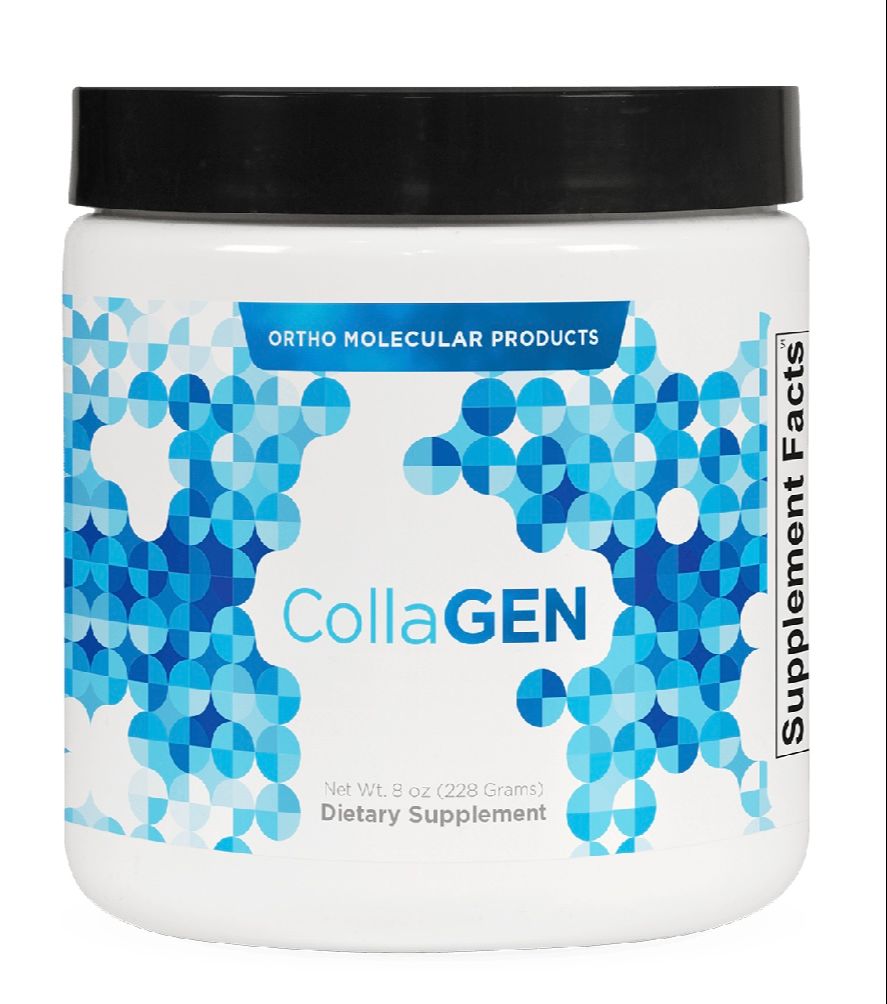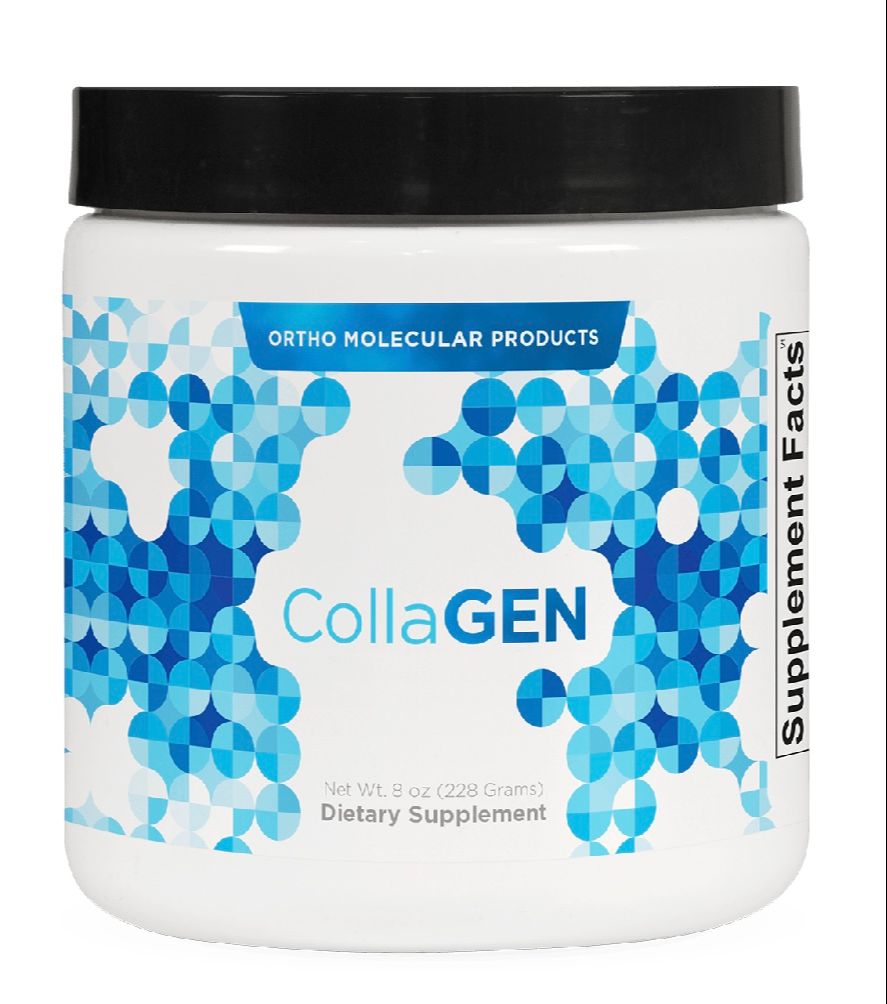The Extraordinary Benefits of Collagen


Benefit 1
Provides joint support, reduces pain and inflammation.

Benefit 2
Protects the cardiovascular system.

Benefit 3
Improves quality of sleep.

Benefit 1
Provides joint support, reduces pain and inflammation.

Benefit 2
Protects the cardiovascular system.

Benefit 3
Improves quality of sleep.

Collagen
Collagen is the primary structural protein in all animals, and it’s the most abundant protein in mammals. (Yes, that means [humans] us, too.) It’s the main component of connective tissue in our skin, bones, muscles, cartilage, tendons, blood vessels, and gut.
In short, collagen acts like a natural glue-like substance that our body constantly produces to hold our skeleton and internal organs in place. In fact, the word collagen is derived from the Greek word, κόλλᾰ (kólla), meaning “glue”, and the suffix γέν (gen), which denotes “producing”.
However, something not so fun is that our body’s natural collagen production starts to slow down as we age. In turn, things like saggy skin, wrinkles, aching joints, and muscle loss—among other signs of aging—are all linked to a lack of collagen production. All in all, collagen is not something we should take for granted; everyday decisions greatly impact our quality of life.
Unhealthy lifestyle choices, such as poor diet (high sugar consumption, processed foods), lack of exercise, high sun exposure, excessive alcohol consumption, and smoking can significantly diminish the body’s ability to produce collagen. [1, 2, 3] In turn, unhealthy choices make us [look and feel] older, faster.
Now that we know how to avoid setbacks in terms of collagen production—or quality of life, for that matter—let’s go ahead and expand on this topic.
The purpose of this information is to empower each reader to improve his/her quality of life by providing the most important information relevant to collagen. Below is a list of topics to be discussed:
• Amino Acid Composition
• Top 8 Health Benefits
• Types of Collagen
• Bioavailable Food Sources (plus benefits of each particular source)
• Vitamins and Minerals that Promote Healthy Collagen Production
• Supplements
As you can see, the discussion opens with amino acid composition. Try to bear with me
on this part, as the primary amino acids in collagen will be noted periodically throughout
this guide.
Amino Acid Composition
There are 20 amino acids that can be found in proteins, while precise amount and
sequence is determined by a distinct genetic code assigned to each particular
organism. [4] Collagen is composed of a triple helix structure, with an unusual
abundance of three amino acids exhibiting over half of its composition (i.e., glycine,
proline, and hydroxyproline). [5]
The most common motifs in its amino acid sequence are:
• glycine-proline-X
• glycine-X-hydroxyproline
(Note: X denotes any amino acid other than glycine, proline, or hydroxyproline.)
Glycine
A principle component of collagen, glycine, makes up about 35% of its amino acid
composition (most abundant amino acid in collagen). [6] While it’s the smallest amino
acid in terms of size, glycine is massive in terms of its significance throughout the body.
It contributes to a multitude of complex functions, such as muscle growth, joint support,
digestion, cognitive function, and immune support, among others.
Proline
The second-most abundant amino acid in collagen, proline, appears in about one-of-six
residues along the amino acid sequence (about 17% overall composition). Proline is a
receptor to glycine and primarily functions as a precursor to collagen synthesis, since it
stimulates the biosynthesis of procollagen (discussed further below). [7, 8]
Hydroxyproline
Hydroxyproline is derived from proline through hydroxylation (biochemical process to
aid cross-linking of alpha peptides). This stabilizes procollagen (triple helical structure),
whereas a lack of hydroxylation loosens it, which causes impaired collagen formation
and scurvy. [9] Once procollagen has been tightly wound to form the triple helix, it’s
then transferred to the Golgi apparatus for modifications prior to completing collagen
synthesis.
Top 8 Health Benefits
In terms of answering our golden question—what is collagen—this is arguably most
important section. Some core benefits were alluded to earlier, but our discussion below
reveals why collagen is far more than just beneficial. Our longevity (and livelihood, for
that matter) is entirely dependent on the presence of collagen.
1. Provides joint support, reduces pain and inflammation.
Collagen forms a smooth, gel-like structure around our bones. In turn, this supports
joints for optimal function and pain-free mobility. On the contrary, however, things like
swollen joints, stiffness, and lack of mobility are all a result of insufficient collagen
production. This happens with age, joint disorders, injuries, or even excess stress on
the joints from physical activity.

"Proin nibh arcu, consectetur a odio nec, aliquet suscipit enim. Suspendisse aliquam, libero ac tincidunt suscipit, lacus quam commodo odio, nec faucibus arcu ante in odio. Proin ornare luctus massa, id hendrerit tellus auctor eu. Nullam eget egestas orci."
Testimonial
Job TItle
[ Offer Title ]
[ Describe your offer and the value it will bring to your customer's experience ]
[ Call To Action ]
